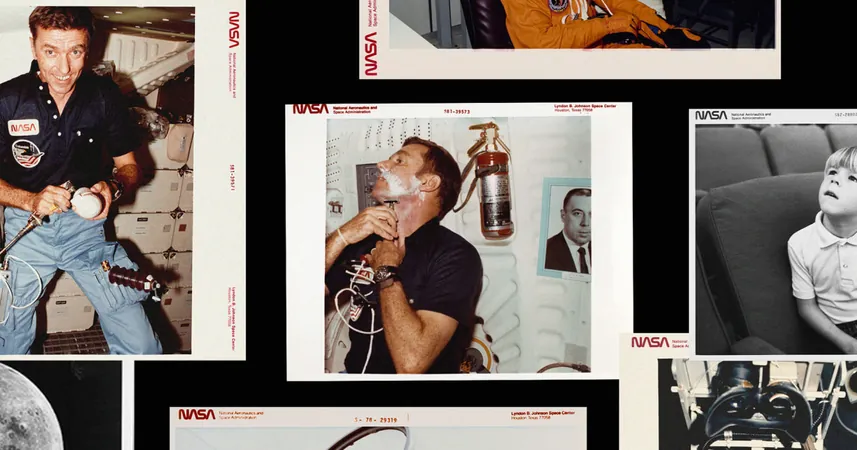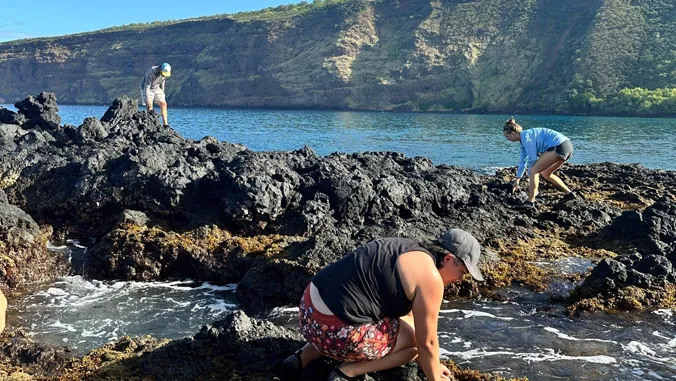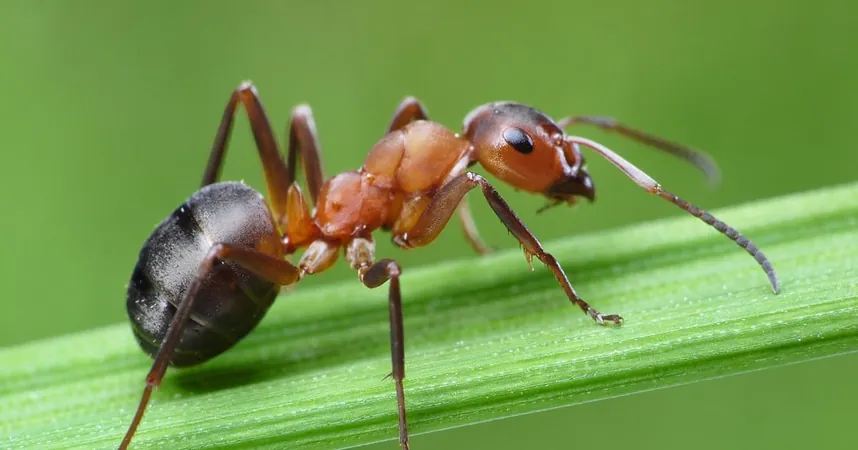
Space Travel May Age Stem Cells 10 Times Faster—What This Means for Future Missions
2025-09-06
Author: Jia
Revolutionary Findings on Aging in Space
Space isn’t just a vacation destination; it’s a challenging environment for the human body. Recent research reveals that the rigors of space travel could age astronauts significantly faster than their earthly counterparts—by a staggering ten times! This revelation comes from a new study published in the journal *Cell Stem Cell*, which investigates the effects of microgravity on stem cells.
The Shocking Truth About Stem Cells in Space
Dr. Catriona Jamieson, a key researcher from the Sanford Stem Cell Institute, emphasizes the alarming implications of these findings. Stem cells, known for their ability to develop into various tissues, are crucial for repairing damage in our bodies. If they age too quickly, the risks of conditions like cancer, heart diseases, and neurodegenerative disorders rise dramatically.
A Study with Stellar Significance
The study drew from fascinating data gathered by observing NASA twin astronauts Mark and Scott Kelly during their year-long experiment. While Mark remained on Earth, Scott faced the direct impacts of spaceflight for 340 days. Notable changes in Scott’s body included DNA deterioration and shortened telomeres—protective caps on chromosomes—leaving lingering effects even six months after returning home.
Research Methodology: A Groundbreaking Approach
To understand how stem cells react in space, researchers took samples from individuals undergoing hip replacement surgery, placing these stem cells in ‘nanobioreactors’ designed specifically for monitoring. Half of these samples were launched into space aboard SpaceX resupply missions to the International Space Station, spending 32 to 45 days in microgravity.
Dismaying Signs of Aging
Upon their return to Earth, scientists analyzed the space-faring stem cells. They discovered increased signs of inflammation, reduced telomere maintenance, and a troubling rise in genomic instability, including replication errors leading to mutations. Christopher Mason, a geneticist at Weill Cornell Medicine, lauds the research, noting that these findings expand our understanding of the aging process in stress environments like space.
Implications for Future Exploration and Health
With space tourism on the horizon and government missions planned for lunar exploration, effectively managing the health risks of space travel becomes crucial. Understanding how space travel accelerates biological aging will not only aid astronauts but could also lead to new therapies for age-related illnesses on Earth. As Jamieson states, "Our goal is to predict, prevent, and reverse stem cell aging, especially in extreme conditions.”
Conclusion: A Cosmic Challenge for Humanity
As we stand at the frontier of space exploration, these findings serve as a stark reminder that the mysteries of the cosmos pose significant challenges for human health. The quest to unlock the secrets of aging in space could illuminate pathways to better health for all of us here on Earth. Are we ready for the journey?



 Brasil (PT)
Brasil (PT)
 Canada (EN)
Canada (EN)
 Chile (ES)
Chile (ES)
 Česko (CS)
Česko (CS)
 대한민국 (KO)
대한민국 (KO)
 España (ES)
España (ES)
 France (FR)
France (FR)
 Hong Kong (EN)
Hong Kong (EN)
 Italia (IT)
Italia (IT)
 日本 (JA)
日本 (JA)
 Magyarország (HU)
Magyarország (HU)
 Norge (NO)
Norge (NO)
 Polska (PL)
Polska (PL)
 Schweiz (DE)
Schweiz (DE)
 Singapore (EN)
Singapore (EN)
 Sverige (SV)
Sverige (SV)
 Suomi (FI)
Suomi (FI)
 Türkiye (TR)
Türkiye (TR)
 الإمارات العربية المتحدة (AR)
الإمارات العربية المتحدة (AR)